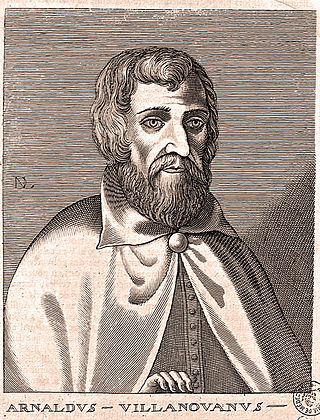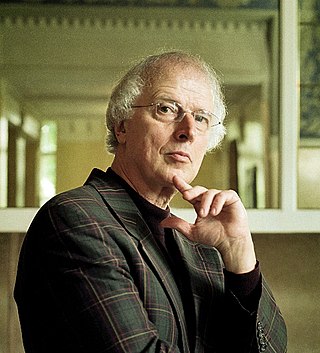This article needs additional citations for verification .(July 2020) |
Ortrun Landmann (born 11 May 1937) is a German musicologist.
This article needs additional citations for verification .(July 2020) |
Ortrun Landmann (born 11 May 1937) is a German musicologist.
Landmann was born as daughter of the aircraft designer and university teacher Hermann Landmann in Szczecin. After her studies and doctorate at the University of Rostock she was a research assistant to the conductors Otmar Suitner and Herbert Blomstedt as well as to the music department of the Saxon State and University Library Dresden. From 1987 until her retirement, she was head of the Répertoire International des Sources Musicales department at the State Library Dresden.
The focus of her historical musicology work is the music at the Electorate of Saxony court in Dresden and the work of the Staatskapelle Dresden.

Arnaldus de Villa Nova was a physician and a religious reformer. He was also thought to be an alchemist: the door to his house in Montpellier, France, had carved depictions of a roaring lion and dragon biting its own tail, both alchemical symbols, and several renowned alchemists recognized him as an adept. He was also known as an astrologer.

Udo Zimmermann was a German composer, musicologist, opera director, and conductor. He worked as a professor of composition, founded a centre for contemporary music in Dresden, and was director of the Leipzig Opera and the Deutsche Oper Berlin. He directed a contemporary music series for the Bayerischer Rundfunk and a European centre of the arts in Hellerau. His operas, especially Weiße Rose, on a topic he set to music twice, have been performed internationally, and recorded.
Since the 18th century Berlin has been an influential musical center in Germany and Europe. First as an important trading city in the Hanseatic League, then as the capital of the electorate of Brandenburg and the Prussian Kingdom, later on as one of the biggest cities in Germany it fostered an influential music culture that remains vital until today. Berlin can be regarded as the breeding ground for the powerful choir movement that played such an important role in the broad socialization of music in Germany during the 19th century.
Pietro Mingotti was an Italian impresario active across continental Europe. His brother, Angelo, formed an opera company in Prague around 1732, consisting of three male singers and five females; Pietro quickly followed suit, and the two troupes achieved European-wide success, sometimes performing together. Pietro's company, the more high-profile of the two, at times included Christoph Willibald Gluck and Giuseppe Sarti as members. Most of the works performed belonged to the genre of opera seria, though opere buffe were also given. Mezzo-soprano Maria Giustina Turcotti was a member of his company from 1746-1750.

Max Seydewitz was a German politician. Between 1947 and 1952 he was the Minister-President of Saxony in the German Democratic Republic.
Klaus Pietschmann is a German musicologist. Since 2009 he has been teaching at the University of Mainz.
Rogier Michael von Bergen was a Franco-Flemish composer, singer and Kapellmeister of the late Renaissance.
Matthias Herrmann is a German musicologist and university professor.
Hans Karl Ferdinand John is a German musicologist and former university professor.
Arno Forchert was a German musicologist.
Hans Schnoor was a German musicologist, journalist and music critic. In the late 1950s, he attracted media attention with his denunciation of Arnold Schönberg's A Survivor from Warsaw.

Gerd-Helge Vogel is a German art historian.
Christian Münch is a German composer, organist, pianist and conductor.
Konstanze Musketa is a German musicologist and head of the Library of the Handel House Foundation.

Jan Dahmen was a Dutch violinist. He was the first concertmaster of the Staatskapelle Dresden and of the Royal Concertgebouw Orchestra in Amsterdam.

Georg Wille was a German cellist.
The Petri Quartet was a string quartet that existed from 1889 to 1914 and was based in Dresden. It was named after the primarius Henri Petri, who was the concertmaster of the Dresden Staatskapelle and the Dresden Hofkapelle. After Petri's death, Gustav Havemann took over the leadership and the quartet was renamed "Dresdner Streichquartett der Königlichen Kapelle".
Annegret Rosenmüller is a German musicologist.
Kurt Emil Striegler was a German composer and director.
Friedbert Streller was a German musicologist and composer.